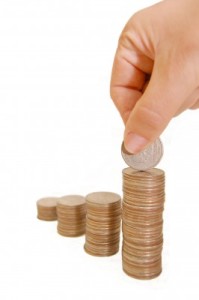“Greed is good,” said the dude in “Wall Street,” Gordon Gekko.
He lied.
Greed can get you into a whole lotta trouble when you’re an investor in the stock market. So don’t listen to Gordon’s siren-like song to you, even though the lure of making more and doing better is strongly pulling on you. Learn instead to be “ungreedy.”
What is “ungreedy” and how does it look when you are buying and selling stocks?
First of all, the general theory is that if your stock goes up a bit, why wouldn’t it necessarily go up a bit more? And because of this kind of “wisdom,” investors hold on when they should take their profits and run. How to avoid this? Set an unemotional, realistic goal in terms of profitability; in other words, set a goal that isn’t full of greed and avarice. How about, for example, a 10% profit? In this day of 1.50% CD interest, who wouldn’t be proud to walk away with 10%? I’ll tell you who: the greedy person who realizes 10%, then says to herself: “I can do better!” and stays with the stock until …. the stock tumbles to 6%, then to 3%, then, before you know it, you’re in the red. All because you got greedy.
Instead, consider the calm, cool approach of the person who sets the 10% profit goal, hits it, and determines to sell the stock. Yes, there is always the possibility that after you sell the stock at 10% profit, it keeps going to 12% and then 15%, and you’ve missed the move. But the reality is that “a bird in the hand” is definitely the motto here.
I know of what I speak. Several weeks ago I bought an inexpensive stock recommended by a friend who had made a nice killing in it. I thought, “If she can do it, so can I!” First error: assuming that just because she did it,I could also. Then, the stock took a tumble. Now I began to panic. Instead of cutting my losses and moving on after selling the loser, I decided to “double down,” meaning I bought the same number of shares at the cheaper price. I figured: it has to go back up, doesn’t it? (Perhaps you can already surmise that this was my second greed-induced mistake: thinking that the loser stock can’t possibly betray me by going down more. Dead wrong!
I think you know where this is going: I wound up selling the stock at a 75% loss. All because I let my greedy evil side get the better of me.
TV host-commentator Bill Maher has said: “If America’s richest one-percent are now so rich that even a five-star hotel isn’t good enough, it’s time to bring back the guillotine.” Greed can get between you and a nice profit in your stocks. The only way to prevent this is to go into a stock trade –both the buy and the sell — with a clear, concise, well-executed plan in mind, and one that doesn’t waiver no matter what.
There is no place for the emotion of greed in stock market investing. You might get lucky once in a while, but for the most part you will eventually get into trouble.

